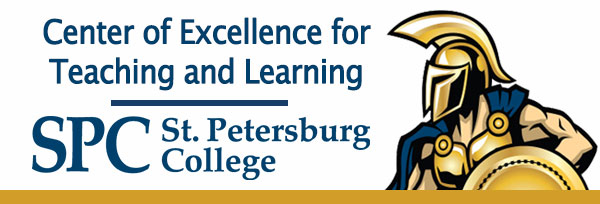Summer Institute Day 3 Session 1: Multiple Exposures
“Forgetting is a feature, not a bug.” – Popov, Marevic, Rummel, & Reder, 2019
3 Strategies for Helping Students Remember What They Learn
We often think of forgetting as a failure in memory, but in truth, the brain is just super efficient, and it knows that if the information is not going to be needed again, there is no need to hold on to it. In our June Summer Institute session, Multiple Exposures and Formats, we provided strategies for helping students overcome the brain’s forgetting feature. Specifically, we discussed how providing students with spaced, interleaved retrieval practice opportunities in a variety of ways can improve their long-term memory retention.
1. Retrieval Practice
Retrieval practice is any learning event where students are asked to retrieve information from just their brains.
With retrieval practice, students strengthen their memory by attempting to recall information without any support materials; it’s a strategy that requires mental effort and prioritizes active over passive learning. In fact, Purdue professor of cognitive psychology, Jeffrey Karpicke, says “recalling information we’ve already stored in memory is a more powerful learning event than storing that information in the first place.”
Low Stakes / No stakes
Students sometimes resist retrieval practice because uncertainty can be scary and pulling information out of the brain requires more mental effort than restudy. But that extra effort is what leads to more elaborative processing and thus better long-term retention. That’s where low-stakes and no-stakes opportunities for retrieval come in. Providing students with ungraded practice quizzes is one no-stakes retrieval practice you’re likely already doing in your classes.
Other Retrieval Practice Learning Events to Try
- Panopto Video Self Quiz: Have students respond to questions about previous lessons embedded in a related video.
- Brain dump (free recall): Ask students to recall as many things as possible in 2 minutes about a specific topic or ask them to recall 3 things about a broader topic.
- Blank visual organizer: Provide a blank or partially blank diagram, concept map, worksheet, or chart for students to fill in from memory.
2. Spacing
Retrieval practice works best when the memory in question is no longer fresh — and that requires the passage of time. In 2015, cognitive researchers at the University of Amsterdam successfully replicated a 130-year-old landmark finding of experimental psychology, Hermann Ebbinghaus’ forgetting curve, and noted that after about seven days, nearly 90% of memorized information is lost with the largest drop-off in just the first three days.
However, by making the brain retrieve information at irregularly spaced intervals and in varying contexts the brain understands that it could be called upon to bring forth that learning at any time in any circumstance, so the brain transfers the information to long-term memory in preparation for later use.
In their article, Spacing Effects in Learning, Cepeda, and colleagues compared many spacing patterns but found no clear-cut answer as to how far apart learning sessions should be. The good news is, overall, spacing benefits learning regardless of how many sessions there are, and the benefits increase the more it’s applied.
3. Interleaving
It can be difficult logistically to space lessons and retrieval practice within the time constraints of a single semester. One technique known as interleaving, however, can optimize the time available. Most often courses present information in a blocked method, covering one topic thoroughly before moving to another topic. An interleaved approach mixes different skills and information into each lesson—covering the same amount of total information in the same total amount of time but allowing for spacing and variety.
Psychologist Doug Rohrer and colleagues at USF conducted a three-month study that involved teaching 7th graders slope and graph problems with blocked and interleaved approaches. Scores on a test conducted one day after the study was 25% higher for problems trained with interleaving. And, at one month later, the interleaving advantage grew to 76 percent.
In 2020, researchers found that despite the known benefits of interleaving, blocking still dominates mathematics textbooks at all levels, from kindergarten through college. About 83% of all problems in the US math textbooks they studied were presented in a blocked method. And nearly half of the practice problems, where interleaving is most beneficial, were blocked. Especially when most textbooks use a blocking approach, adopting interleaving into your teaching practice may have some challenges, but applying it in ways that work for you, no matter how small, can improve student learning.
Interleaving Methods to Try
- Relate concepts and skills: Rather than spend the lesson on conjugating verbs, have students relate those verbs to other vocabulary words, read or write sentences with them, and practice pronunciation.
- Vary organization approach: Have students switch from a linear historical timeline coverage of information to retrieving information in categories like dictatorships or social movements.
- Mix in old material: While covering new material, loop retrieval opportunities back to information covered in prior lessons by making connections to previous chemical elements or solutions covered in the course.
More Good News
Retrieval practice doesn’t just improve long-term learning retention; it decreases test anxiety! In a large survey of nearly 1,500 middle school and high school students over 7 years, 72% of students reported feeling less anxious in their classes with retrieval practice compared to their classes without retrieval practice by the end of the year. Students not only become used to the process of retrieval, but because learning increases, they become more comfortable with course content and less anxious about upcoming exams.
Multiple Exposures and Formats Presentation Bibliography (SPC login needed)
For more assistance, contact the IDEAS team: IDEAS@spcollege.edu
Other
- Summer Institute Session Recordings (unfortunately this session didn’t get recorded, but you can look through the slide deck if you’d like.): https://bit.ly/3NO7jYe
- Feedback Strategies Collaborative Google Doc:
- https://docs.google.com/document/d/12dKo2ZiAiMcHSzqzkfkVReAUpuVNEuBNw1rzJFfM-Ks/edit?usp=sharing
- Questions: IDEAS@SPCollege.edu
- Summer Institute Feedback Survey: https://forms.office.com/r/AvaYKk8jKf




